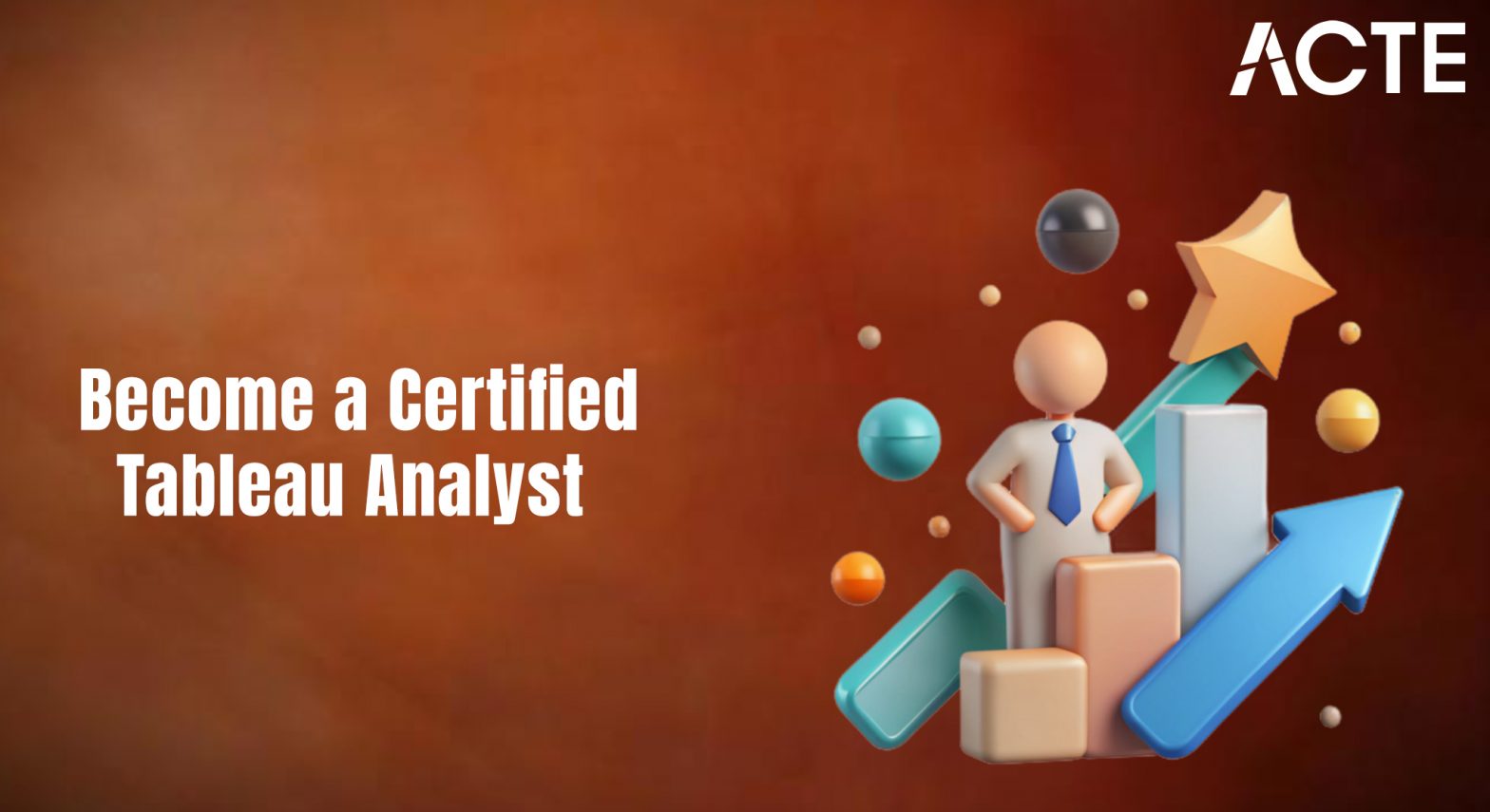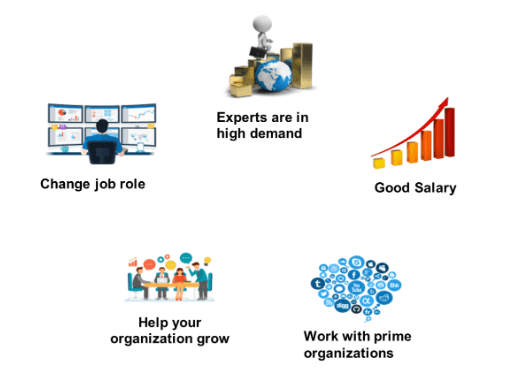
- Introduction to Tableau Certification
- Benefits of Becoming a Certified Tableau Analyst
- Understanding Tableau Certification Levels
- Steps to Prepare for the Tableau Certification Exam
- Key Skills Required for Tableau Analysts
- Effective Exam Preparation Strategies
- Career Opportunities for Tableau Certified Professionals
- Conclusion
Introduction to Tableau Certification
Tableau is a leading data visualization and business intelligence tool widely adopted across industries for analyzing and presenting data-driven insights. With organizations increasingly turning to data to guide strategic decisions, the demand for professionals skilled in Tableau has grown rapidly. Earning a Tableau certification is an excellent way to validate your expertise in data analysis, dashboard creation, and visual storytelling. A Tableau certification demonstrates your ability to work with diverse and complex datasets, apply analytical thinking, and design interactive visualizations that communicate key insights effectively. It confirms your proficiency in using Tableau’s features from connecting to various data sources and applying filters to creating calculations and building dynamic dashboards that support real-time decision-making, skills developed in Business Analyst Training. Whether you are a student, an aspiring data analyst, a business intelligence developer, or a professional looking to transition into data-related roles, a Tableau certification adds significant value to your resume. It enhances your credibility in the job market and opens doors to roles in data analysis, reporting, consulting, and more across various sectors such as finance, healthcare, retail, and technology. Additionally, certified professionals often enjoy better job prospects, higher salaries, and increased recognition within their organizations. Overall, earning a Tableau certification is a strategic investment in your career that signals your commitment to staying relevant and competitive in the fast-evolving world of data analytics.
Interested in Obtaining Your Business Analyst Certificate? View The Business Analyst Training Offered By ACTE Right Now!
Benefits of Becoming a Certified Tableau Analyst
Becoming a certified Tableau analyst offers numerous professional and personal benefits, especially in today’s data-driven business landscape. One of the most significant advantages is enhanced career opportunities. Certification validates your skills and knowledge in data visualization and analytics, making you a more attractive candidate for employers looking to fill roles in business intelligence, data analysis, and data science. Certified Tableau professionals are often seen as experts in their field, which can lead to increased recognition, faster promotions, and leadership opportunities within organizations, benefits highlighted in What is the ASAP Methodology. The certification demonstrates your ability to connect to data sources, build insightful dashboards, perform advanced calculations, and effectively communicate data-driven stories skills that are highly valued across industries such as finance, healthcare, technology, and retail. In addition to improved job prospects, certification can also lead to higher earning potential. Certified analysts tend to command better salaries compared to their non-certified peers, reflecting the trust employers place in verified expertise.

Furthermore, the knowledge gained during the certification process strengthens your problem solving skills and boosts your confidence in tackling complex data challenges. Another benefit is the opportunity to join a global community of Tableau professionals, where you can collaborate, share insights, and stay updated on the latest trends and features. Overall, becoming a certified Tableau analyst not only validates your technical skills but also opens doors to long-term career growth, professional development, and meaningful contributions in the field of data analytics.
Understanding Tableau Certification Levels
- Tableau Desktop Specialist: This is the entry-level certification, ideal for beginners. It focuses on foundational Tableau skills such as connecting to data, creating simple visualizations, filtering data, and building dashboards.
- Tableau Desktop Certified Associate: Aimed at intermediate users, this exam tests more advanced knowledge of calculations, data blending, complex chart types, and dashboard interactivity.
- Tableau Desktop Certified Professional: This is the advanced-level certification for experienced Tableau users. It emphasizes best practices in visualization design, storytelling with data, and advanced dashboard development, essential for How to Build a Successful Data Analyst Career.
- Tableau Data Analyst: A newer, role-based certification that assesses a wide range of data analytics skills using Tableau. It includes scenario-based questions and practical application, reflecting real-world analysis tasks.
- Tableau Server Certified Associate: For IT professionals and administrators, this certification covers Tableau Server architecture, configuration, security, and troubleshooting. It’s ideal for those managing Tableau deployments.
- Tableau Server Certified Professional: A higher-level certification that validates advanced server management skills, including scalability, monitoring, and performance tuning.
- Choosing the Right Path: Your choice should depend on your role, experience, and career goals. Start with foundational certifications and progress to more advanced ones as your skills grow.
- Understand the Exam Format: Start by reviewing the structure of the Tableau Certification exam you’re targeting (e.g., Desktop Specialist, Associate, or Certified Professional).
- Review the Official Exam Guide: Tableau provides an official exam guide that outlines the key topics and skills tested, a resource often used in Business Analyst Training. Focus your preparation around these areas, such as connecting to data, creating visualizations, dashboards, calculations, and organizing data.
- Take Online Training and Courses: Enroll in Tableau’s free training videos or paid certification prep courses. Platforms like Coursera, Udemy, and LinkedIn Learning offer comprehensive Tableau courses tailored to exam requirements.
- Practice with Tableau Software: Hands-on practice is essential. Download Tableau Public or use Tableau Desktop and work on real-world projects, sample dashboards, and datasets to strengthen your practical skills.
- Use Sample Questions and Practice Tests: Attempt sample questions and full-length mock exams to assess your readiness and get comfortable with the exam interface and time management.
- Join Online Communities and Forums: Engage with the Tableau community on forums like the Tableau Community, Reddit, or LinkedIn groups to ask questions, share tips, and learn from others’ experiences.
- Review and Refine Weak Areas: Identify topics where you struggle and revisit them. Use documentation, videos, or forums to clarify concepts before the exam day.
- Create a Study Schedule: Plan your study time well in advance of the exam. Break your syllabus into manageable chunks and assign specific topics to each day.
- Understand the Exam Format: Familiarize yourself with the structure of the exam types of questions, marking scheme, and time limits. This helps you tailor your preparation to focus on the most relevant topics and practice under exam conditions.
- Use Active Learning Techniques: Instead of passively reading notes, engage with the material. Use flashcards, summarize topics in your own words, teach concepts to others, or draw diagrams.
- Practice Past Papers and Mock Tests: Solving previous exam papers helps you understand the question pattern and improves time management, a strategy recommended in Books To Read For a Six Sigma Certification.
- Review and Revise Regularly: Regular revision strengthens memory and ensures long-term retention. Use spaced repetition to revisit topics periodically rather than cramming everything at once.
- Stay Healthy and Well-Rested: A healthy body supports a sharp mind. Eat balanced meals, stay hydrated, exercise, and get enough sleep, especially before the exam day.
- Stay Positive and Manage Stress: Keep a positive mindset and use stress-reducing techniques like deep breathing or meditation. Confidence and calmness can significantly enhance your performance during exams.
To Earn Your Business Analyst Certification, Gain Insights From Leading Data Science Experts And Advance Your Career With ACTE’s Business Analyst Training Today!
Steps to Prepare for the Tableau Certification Exam

Key Skills Required for Tableau Analysts
To succeed as a Tableau Analyst, a combination of technical, analytical, and communication skills is essential. One of the core requirements is proficiency in Tableau software itself this includes knowing how to connect to various data sources, create interactive dashboards, and use charts, maps, filters, and calculations effectively. A strong understanding of data visualization principles is also critical. Analysts must be able to present complex data in a visually clear and impactful way, adhering to best practices for layout, color use, and storytelling. Another vital skill is data analysis and interpretation. Tableau Analysts need to go beyond just building dashboards; they must interpret trends, spot anomalies, and extract actionable insights from the data, skills emphasized in What is SAP Certification. This requires critical thinking, curiosity, and attention to detail. Knowledge of data preparation and transformation is also important. Analysts should be comfortable working with tools like Tableau Prep or writing custom calculations and scripts to clean, join, and shape raw data into a usable form. Familiarity with SQL is highly beneficial, as many Tableau projects involve querying relational databases. In addition, communication skills are crucial. Tableau Analysts often work with business users, stakeholders, and cross-functional teams, so the ability to explain data findings in a clear and concise manner is key. Finally, strong problem-solving abilities and adaptability ensure analysts can respond to evolving business needs and continuously improve their dashboards and insights. These skills collectively empower Tableau Analysts to turn data into meaningful business value.
Want to Pursue a Business Intelligence Master’s Degree? Enroll For Business Intelligence Master Program Training Course Today!
Effective Exam Preparation Strategies
Career Opportunities for Tableau Certified Professionals
Tableau-certified professionals are in high demand as organizations increasingly rely on data to drive strategic decisions. Certification validates your expertise in data visualization, making you a competitive candidate for a wide range of roles across various industries. One of the most common positions is that of a Data Analyst, where professionals use Tableau to create dashboards, analyze trends, and support data-driven decision-making. Many certified individuals also pursue roles as Business Intelligence (BI) Analysts, responsible for developing and maintaining reporting systems, gathering business requirements, and turning raw data into strategic insights. In more technical settings, Data Scientists and Analytics Engineers with Tableau skills are valued for their ability to merge complex data analysis with powerful visual storytelling, a topic discussed in Which Certification is Right for You: Six Sigma or Lean Six. Other career paths include Tableau Developers, who focus specifically on building and optimizing Tableau dashboards for business use, and Reporting Analysts, who maintain and enhance business reporting tools. In leadership roles, certification can support advancement to positions like Analytics Manager or BI Consultant, where professionals oversee data teams and guide data strategy. Industries such as finance, healthcare, retail, technology, education, and government actively seek Tableau-certified talent. The certification not only enhances job prospects but also improves chances for higher salaries, freelance opportunities, and career mobility globally. Overall, becoming a certified Tableau professional opens doors to diverse, rewarding, and future-proof careers in the fast-growing field of data analytics.
Go Through These Business Analyst Interview Questions and Answers to Excel in Your Upcoming Interview.
Conclusion
In today’s data-driven world, the ability to analyze and visualize data effectively has become a critical skill across industries. Tableau stands out as one of the leading tools in business intelligence, offering powerful features that help individuals and organizations make informed decisions through interactive and insightful visualizations. Earning a Tableau certification not only validates your technical proficiency but also showcases your commitment to continuous learning and professional growth. Whether you are just beginning your journey into data analytics or are an experienced professional looking to enhance your credentials, Tableau certification can significantly boost your career prospects. It equips you with the practical skills needed to handle real-world data challenges, design impactful dashboards, and contribute valuable insights that drive business performance, all part of Business Analyst Training. Additionally, certification enhances your credibility, increases your earning potential, and gives you a competitive edge in a rapidly evolving job market. The process of preparing for and earning certification helps deepen your understanding of data concepts and visualization best practices. It also connects you with a global network of Tableau professionals, offering opportunities for collaboration, mentorship, and continued development. In conclusion, Tableau certification is a strategic investment in your future. It opens doors to exciting career opportunities, empowers you to make data-driven decisions, and positions you as a capable, confident, and competent analytics professional in a data-centric economy. With the right skills and certification, your ability to turn data into meaningful insights becomes a powerful asset in any organization.


